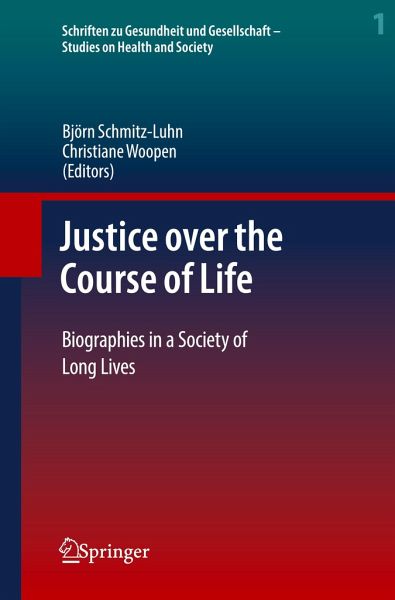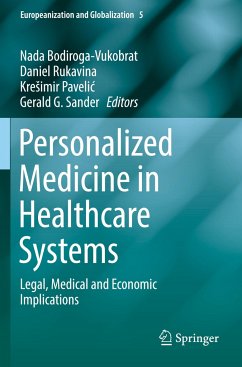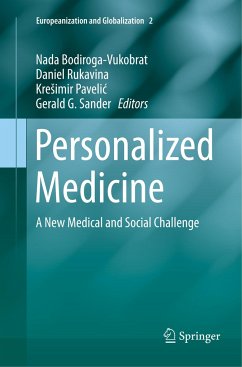
Justice over the Course of Life
Biographies in a Society of Long Lives
Herausgegeben: Schmitz-Luhn, Björn; Woopen, Christiane
Versandkostenfrei!
Versandfertig in 6-10 Tagen
106,99 €
inkl. MwSt.

PAYBACK Punkte
53 °P sammeln!
In this interdisciplinary book, experts from philosophy, medicine, law, psychology, economics, and social sciences address questions and develop solutions for a well-designed society of long life. Young as well as old people have to actively shape more and more of their life span. At the same time, aging becomes more multifaceted: the individual view on one's own life course is changing, and the needs and demands for a fulfilled life are diversifying. The implications affect all spheres of life - from education and workplace to health care and the culture of interaction. They require content-r...
In this interdisciplinary book, experts from philosophy, medicine, law, psychology, economics, and social sciences address questions and develop solutions for a well-designed society of long life. Young as well as old people have to actively shape more and more of their life span. At the same time, aging becomes more multifaceted: the individual view on one's own life course is changing, and the needs and demands for a fulfilled life are diversifying. The implications affect all spheres of life - from education and workplace to health care and the culture of interaction. They require content-related and structural adjustments for a diverse society of longevity in which multiple generations live alongside each other. But how can change be managed responsibly, how can individual and collective responsibility be distributed appropriately, and how can a sustainable and fair social future be ensured?














